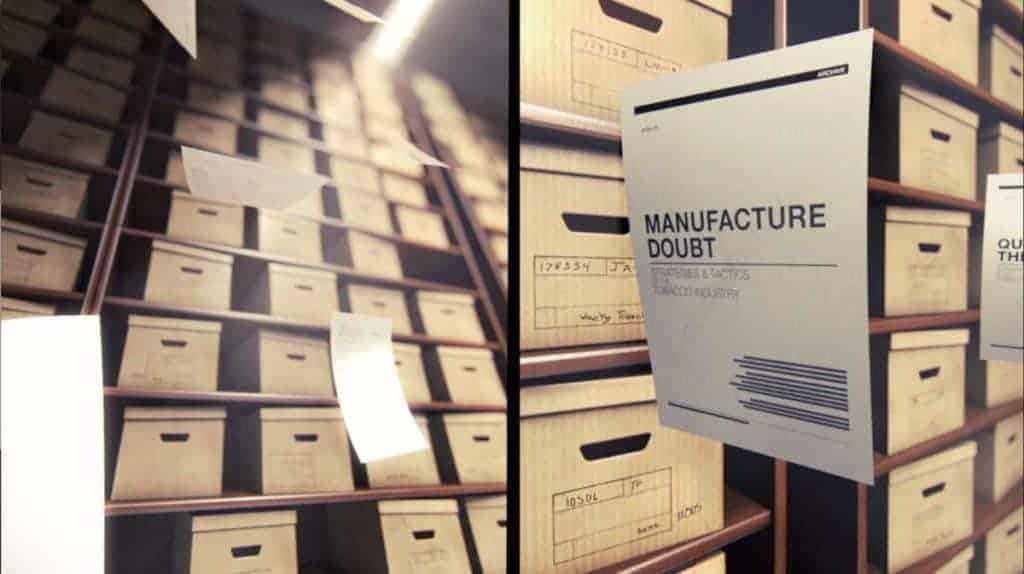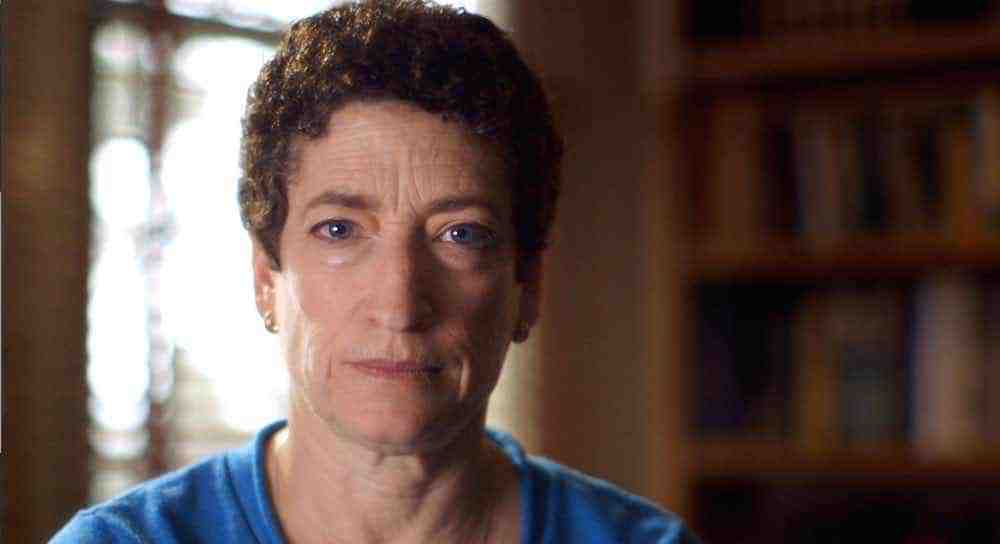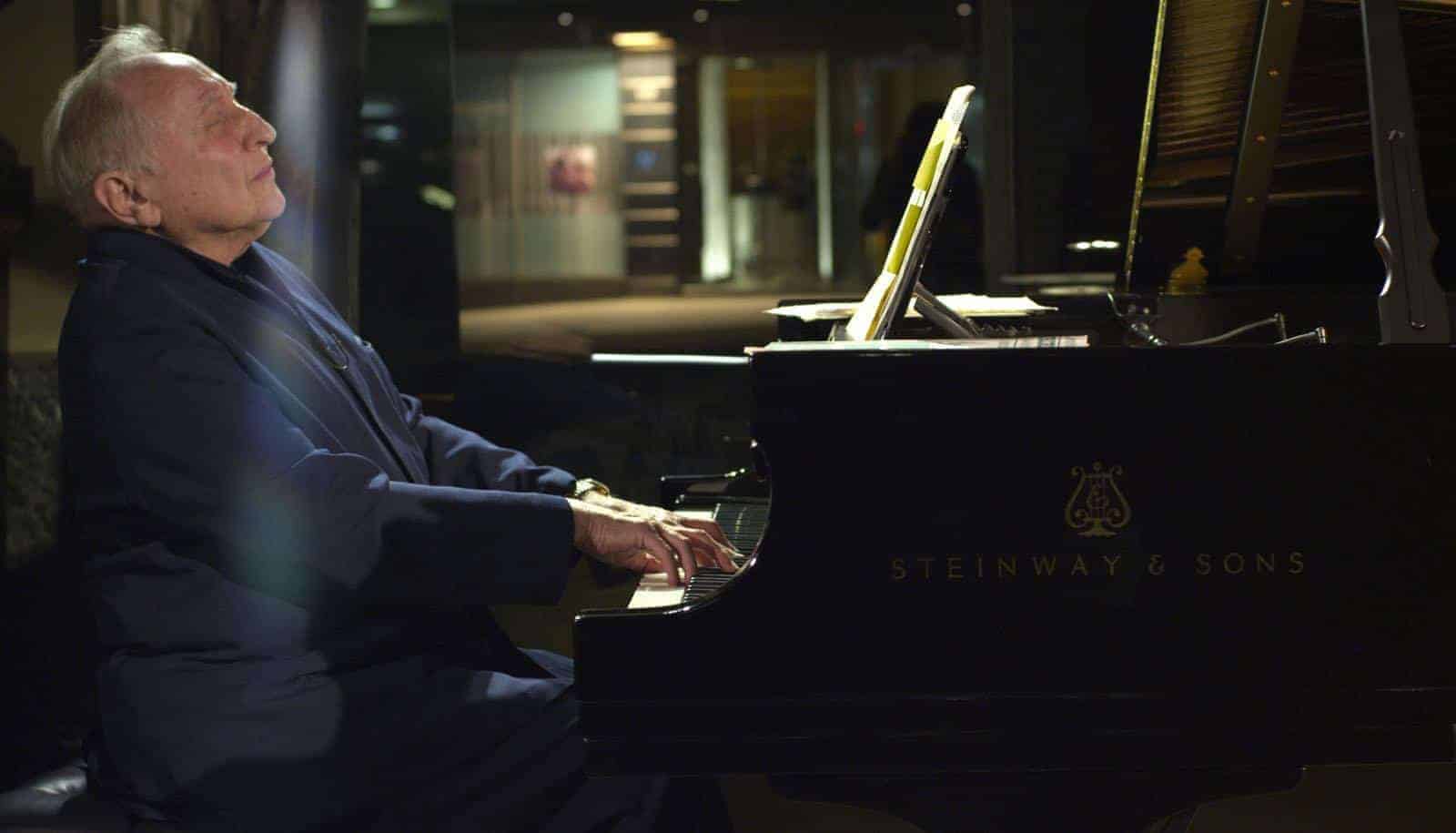Merchants of Doubt takes an in-depth look at how the same public relations experts — these “Merchants of Doubt” — who helped tobacco companies persuade the world, in the 1950s and 1960s, that cigarettes weren’t harmful to health, even though the tobacco companies had done their own very good scientific studies that proved the opposite, were later employed to sell lies about climate change.

In 2004, Harvard Professor of the History of Science, Naomi Oreskes, set out to read 928 scientific, peer-reviewed journal articles about climate change, to determine if there were a scientific consensus on anthropogenic climate change. She expected to find at least some dissenters. But not one of these papers disagreed with the consensus position. Yet the mainstream media (including my current institution’s student publication’s embarrassing recent addition) still acts as if there’s some kind of debate about whether or not climate change exists, and if it does, if humans are responsible. Not even a recent video of a statistically representative climate change debate, with two skeptics and 98 scientists who support anthropogenic climate change, on John Oliver’s Last Week Tonight was enough to silence the ignorant.
Robert Kenner’s new documentary, Merchants of Doubt, based on Oreskes’s eponymous book, explores the politics of climate change denial, and the massive amounts of money that get funneled into deceiving the public. The film is the latest in a series of activist documentaries about climate change designed to generate outrage, starting with Al Gore’s excellent An Inconvenient Truth, which explained the science behind and impact of climate change, and continuing with 2012’s Chasing Ice, which documented the terrifying worldwide glacial retreat. Merchants of Doubt takes a different approach. Leaving the science and technical details behind, it explains the deception tactics used by climate change skeptics, and why the issue of climate change has always been, in the red states, more about heart than head.
Why is it, for example, that Fred Singer, a respected physicist and professor, has become one of the loudest dissenting voices about anthropogenic climate change? The film speculates that it’s because he was a Cold War scientist, working on Cold War weaponry programs, which made him staunchly anti-socialism. Climate change — like the causality between cancer and second hand smoke, another issue he spoke strongly and publicly against — was an issue that would require government intervention. He saw such intervention as a slippery slope towards communism. So he used his scientific clout to make political statements that weren’t based on scientific facts.
If you start to look closely at which so-called scientists are the firm climate change deniers, which the film does, none of them are experts in climate science: they may be scientists, but many of them didn’t train in environmental or atmospheric science. Many don’t even have more training than a bachelor’s degree. And if there’s one thing I’ve learned from talking to highly trained scientists, it’s that the more you know about your field, the more you know you don’t know about other fields, even those closely related to your own. It’s only because the deniers don’t have the credentials to make judgments about whether or not climate change is real that they feel they have the credentials to do so.
One of the film’s best segments is a tangent about the former Republican Congressman Bob Inglis. In a talking head interview, Inglis recalls that when he started out in Congress, he was a climate change denier: he felt that this was part of towing the party line. He had never bothered to look at the scientific evidence, because he’d always viewed the issue as a politicized one, something that one does or does not believe in. But when he got himself on a climate change committee, and found himself in the Arctic, looking at the historic carbon dioxide data stored in ice, he was forced to come face-to-face with the facts: climate change is real. He changed his stance, and he fought for legislation to mitigate climate change. It lost him his seat, but it also completely changed how he thought about his party, his constituents, and the issue: his view is that people can’t even get to the point where they can listen to reason, because they feel that it’s their duty not to listen. He’s made it his life mission to try to find a way to change this.

The meat of the film, however, is looking at how the same public relations experts — these “Merchants of Doubt” — who helped tobacco companies persuade the world, in the 1950s and 1960s, that cigarettes weren’t harmful to health, even though the tobacco companies had done their own very good scientific studies that proved the opposite, were later employed to sell lies about climate change. And the merchants of doubt didn’t stop there. They also fought for the merits of flame retardants, the innocuousness of asbestos, and the harmlessness of acid rain— the list goes on.
We get some insight into their operating handbook, which was all about casting just enough doubt for plausible deniability, and their complete lack of ethical standards. In an interview with Marc Morano, perhaps one of the biggest slime-balls in the industry, who proudly appears in the film — he calls himself an “environmental journalist” — he talks about the delight he takes in making public the home and email addresses of prominent climate scientists so that they can be the subject of hate mail and death threats from crazy climate deniers across the country. He considers the daily death threats they now receive a personal triumph (he’s also the man facing off against Bill Nye in the video quoted on Last Week Tonight).
But Morano also clearly explains the key advantage the PR experts always had over scientists: selling a simple, false message, to an audience nourished on short sound bytes. Meanwhile, the scientists were burdened with explaining a far more nuanced, complex truth to a scientifically illiterate public — and as the film briefly explores, and I can attest to from personal experience, scientists are barely even trained to communicate with each other let alone lay people in the general public. Money means power, and lobbyists have so much control in the political realm, such as in Congress, that their strong, simple, and effective messaging can twist scientific truths to their national political advantage to protect the status quo.
Merchants of Doubt strikes me as an important film, with an important message, but I’m not sure that it’s really focussing on the most important part. It’s nice to see the problem of climate change tackled from a new angle, but this is still another form of preaching, another film designed to outrage. But how is the audience meant to channel that outrage? Is this really going to change the minds of climate change deniers? Will they even see the film? I flocked to the cinema with excitement, but I’m the daughter of environmental scientists. I’m a Ph.D. Candidate doing research on how to reduce the greenhouse gas emissions of the food system. I’m the converted, and I didn’t exactly learn anything new from the film, though it may have helped reframe the issue for me and helped me to better understand the climate change denial industry.
The film is a strong argument for the importance of better science education so that the public can’t be so easily fooled. We need better scientific literacy for a better democracy. Similarly, we need to train scientists to communicate with the public so that they can’t be shanghaied by these merchants of doubt. At one point in the film, James Hansen — one of the key scientists who got the conversation started about climate change — says that doing the science is hard enough, let alone communicating it. But I suspect his quote is taken out of context. I suspect he’s very aware of the importance of ensuring scientists can communicate. The film could have helped show a way forward by following that path, giving us somewhere to channel that outrage, rather than getting us incensed, but leaving us to forget why or what to do, within a few days of viewing.
And finally, like many Activist Documentaries, from Fed Up to The Hunting Ground, Merchants of Doubt has blinders on about the world outside the U.S. It takes climate change denial as a given, as opposed to a largely American-led phenomenon. It doesn’t, even for a minute, begin to ponder why climate change is an accepted fact in most of Europe. Why is it that Europe has been able to act and convince its public that climate change is real while the opposite is true in the U.S.? The U.S. is one of the few countries that refused to even sign the Kyoto Protocol, an international agreement for climate change action. How did the American political system allow the climate change denial industry to thrive while the European political system fostered climate change action?
Some deeper consideration of the issues is needed, but the idea of even looking to the outside world is so foreign to Merchants of Doubt that it makes it hard to believe it can be an effective means of changing the status quo. Now that we understand the climate change denial industry, and just how gross it is, what can we do about it? The film provides no answers nor suggestions of next steps for inquiry. It’s too busy trafficking in outrage, and that is a problem.
Read more: Review: An Inconvenient Sequel never proves necessary >>

